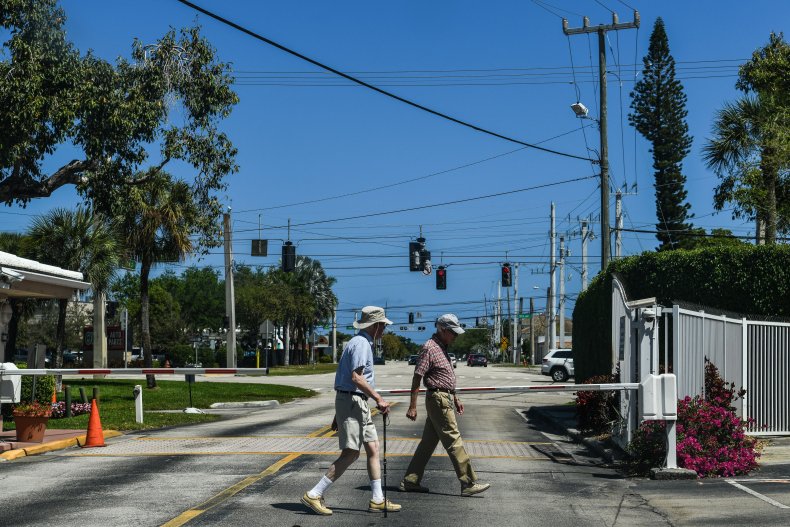While it remains higher than the Federal Reserve would like it to be, inflation has consistently been slowing down in recent months—an achievement that could lead to lower cost-of-living adjustments in 2024 for millions of American retirees, experts have told Newsweek.
Earlier this month, The Senior Citizen League, a nonpartisan senior group, estimated that, based on the most recent consumer data, next year's COLA—the Cost-of-Living Adjustment to Social Security and Supplemental Security Income (SSI)—could be 3 percent.
This would probably be a difficult situation to navigate for retirees relying on Social Security for their spending in Florida's Miami-Fort Lauderdale-West Palm Beach, which is estimated to have the highest inflation rate of all metro areas in the country, at up to 9 percent.
The COLA will be officially announced in October—meaning that the Senior Citizen's League estimate could still change. But the estimate remains much lower than the adjustment for 2023, which included the highest boost in 40 years with an 8.7 percent rise, according to CNBC.

While this estimate reflects a significant drop in the national inflation rate recorded in recent months, retirees in Florida's Miami-Fort Lauderdale-West Palm Beach continue to live with higher inflation rates than the rest of the country—meaning that benefits would likely struggle to keep up with the cost of living there.
Florida has become the country's inflation hotspot recently, with more than 2.5 million residents of the Miami-Fort Lauderdale-West Palm Beach area living with a 9 percent inflation rate for the 12 months ending in April, according to new data from the Bureau of Labor Statistics cited by CNN.
At the national level, the annual core inflation rate was 4.8 percent in June, according to a recent report by the Bureau of Labor Statistics (BLS).
Florida also has one of the highest percentages of residents over the age of 65 in the entire country, second only to Maine. Of a total population of over 21.7 million, more than 4.6 million were aged 65 and above—about 21.3 percent of all Floridians, according to the Census Bureau's 2020 population estimates.
In total, there are more than 55 million Americans aged 65 and above, according to the bureau.
According to the Population Reference Bureau (PRB), a nonpartisan research organization that often cooperates with the U.S. Census Bureau, states like Florida—including Arizona, New Mexico, and South Carolina—have attracted a large share of older retirees in recent decades, thanks to the warm weather and tax benefits for seniors.
That has led them to have a higher percentage of older residents—a phenomenon that other states are expected to catch up with as the U.S. demographics grow older in the next few years, PRB says.
"For retirees in places where inflation has been higher than the national average, the purchasing power that they receive from their Social Security benefit is not going to fully keep up with the cost of goods and services," Emerson Sprick, Senior Economic Analyst at the Bipartisan Policy Center (BPC) think tank in Washington, D.C., told Newsweek.
"Even though inflation is coming down, it's still probably less than the inflation they're experiencing, especially in the area of health care and prescription drugs," Richard Fiesta, executive director at the Alliance for Retired Americans, told Newsweek.

We don't know the actual spending patterns of Social Security beneficiaries in Miami-Fort Lauderdale-West Palm Beach, and there's some uncertainty about how a lower COLA will impact them, Sprick said, adding that only a minority of Social Security beneficiaries rely on the benefits for their spending.
But Fiesta said that "the trend over the last couple of decades has been that more and more people are relying on Social Security and a large percentage of Social Security recipients are now relying on Social Security for over half of their income in retirement."
About half of the population aged 65 and above rely on Social Security for 50 percent of their income, according to data from the Social Security Administration, and 25 percent rely on Social Security for 90 percent of their income.
While Sprick thinks that most retirees in Florida will likely not be affected by a lower COLA, Fiesta thinks that we could see an increase in Social Security recipients turning to public programs for help.








